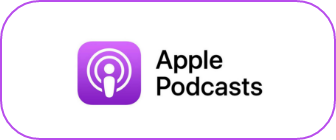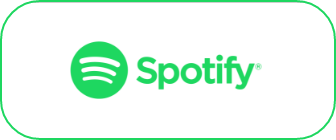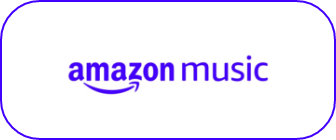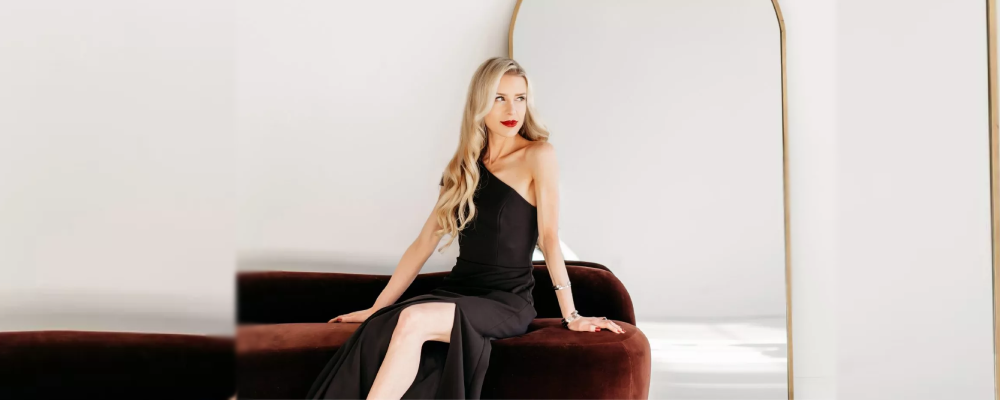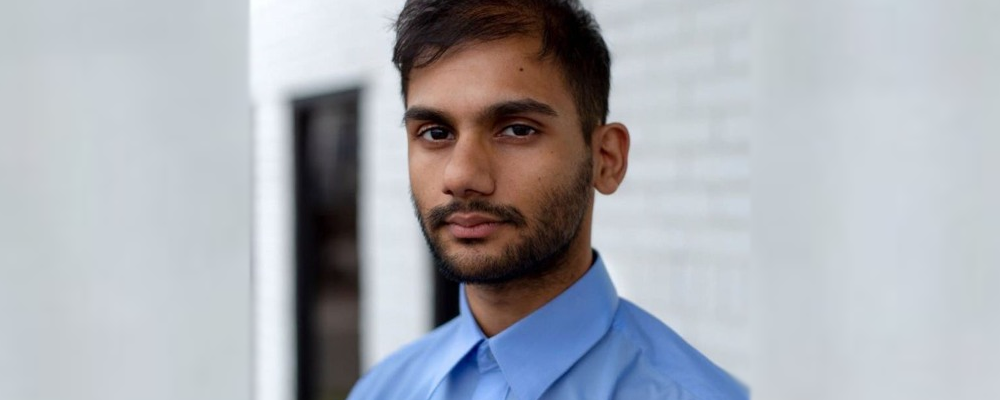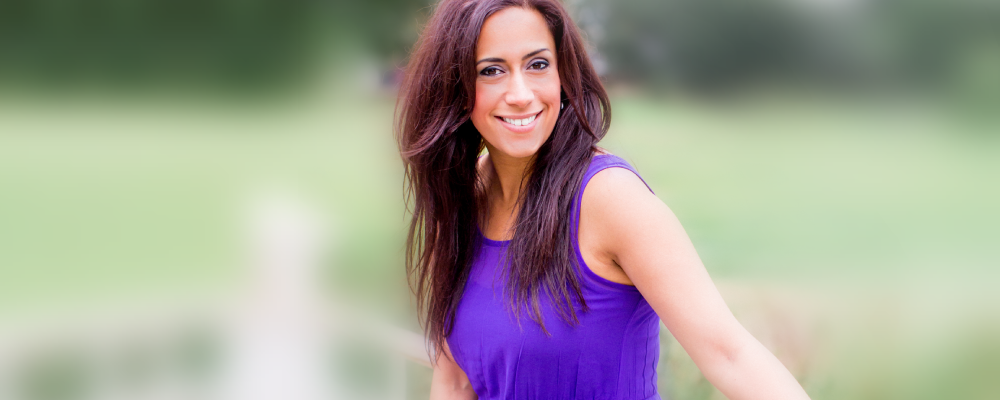Listen
Show Notes
Today’s episode is absolutely packed. From a chock full of information to tangible tips that we all can do right now, this one has it all. Dr. Nasha and Steve share their experiences with cancer and cancer treatment, how they are helping change the field of oncology, and why they have an optimistic outlook on cancer and its treatments.
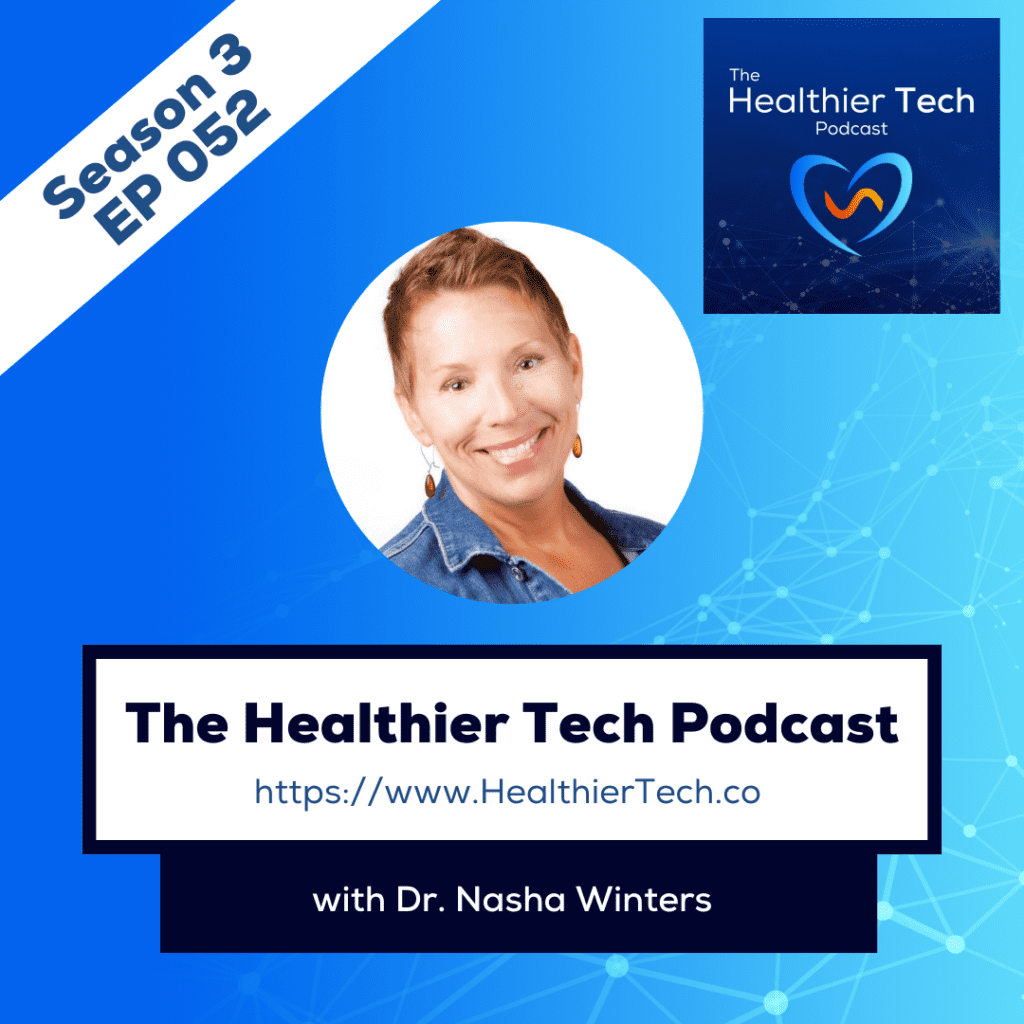
In this episode, you will hear:
- Nasha and Steve’s personal and professional journeys with cancer.
- Taking a healthy approach to data analysis.
- Listening to your body to heal (not cure) yourself.
- The birth of MTOmics and understanding cancer metabolism and respiration.
- Why you should look at your entire medical and life history – your biography dictates your biology, and your biology can dictate your biography.
- Individualizing your treatment based on your biochemical individuality.
- The dynamic future of oncology.
- Why breathing is the secret to thriving in life.
In the fall of 1991, Nasha was given a terminal cancer diagnosis shortly after she started dating Steve. Who knew that the two of them would embark on the most amazing adventure ever—overcoming the odds, finding passion and purpose from pain, realizing a better way to change healthcare outcomes and pulling together all their experiences and resources to launch a non-profit hospital and research institute, education and data platform and global network of physicians and patient advocates. Not a dull moment in their household.
Connect with Dr. Nasha Winters:
Website: www.mtih.org
Website: www.mtomics.com
Website: https://drnasha.com/
Facebook: https://www.facebook.com/MTIH.org
LinkedIn: https://www.linkedin.com/company/mtihorg/
Instagram: https://www.instagram.com/mtihorg/
Instagram: https://www.instagram.com/metabolic.terrain.omics/
Facebook: https://www.facebook.com/MTOMICS
LinkedIn: https://www.linkedin.com/company/metabolic-terrain-omics/
Connect with R Blank and Stephanie Warner:
For more Healthier Tech Podcast episodes, and to download our Healthier Tech Quick Start Guide, visit https://www.healthiertech.co and follow https://instagram.com/healthiertech
Additional Links:
- Shield Your Body website: https://ShieldYourBody.com
- Shield Your Body Youtube Channel: https://youtube.com/shieldyourbody
- Host R Blank on LinkedIn: https://www.linkedin.com/in/rblank9/
- Shield Your Body on Instagram:https://instagram.com/shieldyourbody
Transcript
Dr. Nasha Winters [0:00]
There is so much information. I feel like we get to ingest that information. We get to go like that for you. We get to look at the real data driven information and help people make clinical decisions make help physicians make clinical decisions and make patients make political decisions based on their in of one, not based on what influencer is saying what on what social media or podcast today. So this is exactly where the MT omics platform comes in is helping people clear out the noise and get very focused for themselves.
Announcer [0:35]
Welcome to the healthier tech podcast, the show about building a healthier relationship with modern technology. Now, here are your hosts R blank and Stephanie Warner.
R Blank [0:48]
Well, Steph, on today’s show, we have a nice surprise for our listeners, we have a twofer. We have Dr. Naisha, and Steve honours Berg cofounders, of empty omics. So we’ll get into what that is. Without I don’t want to delay getting into the episode. The one thing I’ll say in advance, and again, there’s a lot that our listeners are going to learn today. But the one thing that really stood out to me was the degree of optimism that they have for oncology and cancer treatment. And it’s a really positive and uplifting discussion.
Stephanie Warner [1:19]
Yeah, I loved it. And I just want everyone to buckle up. You’re gonna hear a lot of things, a lot of words, a lot of syllables, lots coming at you. You will be amazed at the last thing that the last few tidbits that we get from our two guests that it was going to, you’ll be surprised and I hope y’all hang in and enjoy this episode as much as we enjoyed the conversation. Let’s get into it. Let’s do it.
R Blank [1:47]
Dr. Naisha is a naturopathic integrative oncologist and a fellow of the American Board of naturopathic oncology. She has been on a personal journey with cancer for almost 31 years, her quest to save her own life has transformed into a lifelong mission to support others on a similar journey. Dr. Naisha travels the world helping colleagues master the metabolic approach to cancer so their patients can achieve better treatment and outcomes. She is the co author of the metabolic approach to cancer integrating deep nutrition, the ketogenic diet and non toxic bio individualised therapies, and mistletoe and the emerging future of integrative oncology. Welcome to the healthier tech podcast Dr. Nisha Yay. Thank
Dr. Nasha Winters [2:29]
you guys so much and thanks for letting me bring in my my sidekick today who’s not a sidekick but yeah, he is. I mean, we met over what Steve a foetal pig over 32 years ago, oh,
R Blank [2:47]
if I had a nickel for every time everyone has that story.
Dr. Nasha Winters [2:52]
And sort of the rest is history. But also as we dive in, you’ll understand why it’s a unique, you know, a unique relationship. So we’ll come into that we’ll come back to that. But I thought the foetal pig intro is appropriate for this. I
Stephanie Warner [3:05]
love it.
R Blank [3:07]
And so our listeners aware the Steve that Dr. Nisha was just referring to is Steve otters Berg, who’s the co founder and CEO of Mt. omics. Did I say I know it stands for metabolic terrain omics, but how do you actually say that name when you say empty omics? Empty omics. Great. So Hi, Steve.
Steve Ottersberg [3:27]
Good afternoon. Thanks so much for having me today.
R Blank [3:31]
So, to kick things off, Dr. Nisha, I understand that your cancer journey, I’d say unfortunately started at like a surprisingly young age, I think it was 19. Is that right? And can you can you share some details about that and how it affected them and sparked your incredible medical career?
Dr. Nasha Winters [3:51]
Absolutely. I mean, simply put, I had a lot of health issues my entire life leading up to that moment. And so when I had a kind of an exacerbation of these particular symptoms, along with my previous diagnoses of things like irritable bowel syndrome, endometriosis, polycystic ovarian syndrome, rheumatoid arthritis, a lot of you know, like cystic acne, digestive issues out the wazoo, when the symptoms started to exacerbate myself as well as all the clinicians that I saw on the ER Doc’s that I saw over a period of about a year, year and a half, just that it was a worsening of what I already had going on. So by the time I landed, in the emergency room, in stage organ failure, a belly full of malignant fluid and pore, blockage in my colon and poor oxygen, you know, perfusion, that’s when they finally did a proper workup and realised it wasn’t just a histrionic teenager, that I actually had something going on to the point where I was so sick, I couldn’t even take on a single dose of chemotherapy. So I was basically sent out to pasture given just a couple of months to live, and had instead of thinking I could beat this because that was not at all in my belief system. I got really curious Like why would a 19 year old have a stage four terminal ovarian cancer diagnosis? It is not common unless you’re like into your 70s or 80s, which is what the statistics were showing at that time I was pre med so I had enough background to know what to look for. And so, ironically, why we brought up the foetal pig and this crazy cat over here in the Hollywood square, Steve otters, Berg is we have just started dating at that time and what crazy 22 year olds gonna stick around with a dying 19 year old Well, apparently him. But part of that and I’ll let Steve tell that part of the story before I dive into what’s projected 33 decades into the future as to why a 19 year old dying of cancer didn’t scare him. So maybe Steve take a quick stage stage right on that one?
Steve Ottersberg [5:43]
Sure. Well, I just turned out that this was not too long after my oldest brother was diagnosed with stage four pancreatic cancer, I think I was about 13 years old when my brother Bob was diagnosed. And just for perspective, my brother Bob was 20 years older than me. I’m the youngest of 10 kids. And at the time, there was also a study being done on my family, because pretty much with few exceptions on my mom’s side of the family, she’s the middle of six. All of the firstborn males in my mom’s that in the generation that my mom’s brothers and sisters had died of some type of cancer. And so I just thought, well, you have cancer, everybody has cancer, don’t they? Also, part of it was when my brother Bob was diagnosed, he and I were there. They called us the book ends because he was redhead and I used to be redhead but when I was younger, and when Bob was diagnosed, you know, in his early, early 30s, he was given two months to live. He had a grapefruit sized tumour, he gave the oncologist a finger, after they told him Oh, sorry, during your exploratory surgery, we gave you a high pack, just because we don’t think you’re gonna last more than two months. So go home and get your affairs in order because we have nothing for you. So it was no surprise when Nisha told me she was diagnosed with cancer. And
Dr. Nasha Winters [7:05]
part of that is what 24 Bonus years his getting a fair in orders for another two and a half decades was how that story unfolded. And he went a very different route standard of care didn’t have anything to offer him. So he had to go out on his own. And so when I told Steve, I was kind of going it alone and trying to figure out the why he didn’t run from next, he’d already had a personal experience. So for Steve, it wasn’t weird that I went this route, right. And so that’s where our story began. But it’s also where we both got very passionate. You know, I ended up in medical school, he ended up in graduate school as a as a cancer drug designer, I became really obsessed with medicine, but was never going to touch cancer with a 10 foot pole because of my own history. And ironically, what the first week I was in private practice, somebody came rolling in, in a wheelchair in my office for pain management, because they also did acupuncture, and was in stage glioblastoma multiforme, which is the most aggressive form of brain cancer and his ventricles were closed on his imaging. And he was having uncontrollable seizures and the pain was so bad, his parietal lobe was sticking out, he was wearing diapers, he couldn’t speak. It was extreme end of life. And the only thing I knew to help him at that time, because of what the literature showed was a therapeutic ketogenic diet for the seizure management, which had been used since the 1920s. Out of Harvard and Hopkins era, a, you know, on paediatric populations that stopped his seizures within a matter of 48 hours. And acupuncture really helped his pain where morphine wasn’t touching it, and we manage to even with his ventricles closed on his imaging, he lived another 18 months with a very high quality of life and, you know, beyond way above and beyond what standard care would have given him and so the world catapulted me into this, despite my fighting against it, and Steve and I, our work has been in this field ever since.
Stephanie Warner [8:55]
Wow, that’s a so there’s a lot here. There’s a lot and it is it is absolutely crazy. And I can completely see why you both you know, cancer was was obviously a very big defining part of both of your early lives and I can see how it’s become part of your work, but just stepping back a bit. So you touch back to natural Utah you touched on this patient who you you said you read in the literature that that the ketogenic diet might help How did so how did you get from sent home to your death on your deathbed to surviving and thriving because I feel like there’s a lot there and I’d love to hear I’d love to hear more about it.
Dr. Nasha Winters [9:41]
Yeah, well, I’ll tell you I mean I’m 31 years in I’m still on this journey. I’m still learning for myself I’m still you know, probably standard of care would not consider me cancer free. I still have a lesion in my right ovary I still lesions on my liver, you know, peritoneal implants, I get lymph nodes, involvement still in my pelvis, but I’ve managed this crime Like process for some time, I am not cantering by any means of it. My labs look gorgeous. My markers look gorgeous. Everything is stable maple. But what I ended up doing and it’s still doing I’m learning so remember that this is 1991 this is pre Dr. Google. Okay, there was a Dewey Decimal System and microfiche, right and lettering cards. Right that was in we read a very small liberal arts school in Durango, Colorado, Fort Lewis College, some people call it Fort Lewis high. And it was at a time where I worked in the library is my work study. I was pre med in my undergraduate. And so I just started milling through this antiquated library because we were a relatively poor liberal arts school. So we had a lot of outdated information. So I stumbled upon the work of Otto Warburg, maybe so you can dive in on that here in just a moment that talked about cancer more as a metabolic disorder versus a somatic gene mutation disorder, which is how we treat it today. So that got me thinking. And I also started reading, starting learning about other therapies, integrative or alternative therapies in treating cancer, which, because I was given no choice from standard of care, I started to explore and apply some of these things for myself. Now, one really important piece of this that was a total accident even though there’s evidence from as far back as 1909 from Dr. moreci, Mo, our ESC ahi, that fasting alone could debulk the tumour massive massively meaning make the tumour much smaller, because of the bowel blockage, I could not eat at all, for several weeks, and almost anything at all for two and a half months. And that actually was probably one of the accidental things that saved my life, because I had to keep getting the fluid drained from my abdomen, and I would fill up less and less frequently. And as I fasted, I too had bowel rest that helped that, that blockage open naturally, and resolved a tonne of the inflammatory processes that were going on in my body and sort of bought me enough time to start to learn about and apply other things to my process. So it was part one, part two, I can be really frank here prior to this, I didn’t really have much of a will to live, I came from an extremely traumatic upbringing, and even being like the only person to go to college and all the different things in my family’s like a family of origin, there were a lot of barriers against me having any type of quality of life or success in life. And so I just kind of saw it as futile. I even tried to take my life a few times in my early teens. And so the opportunity that cancer gave me was sort of that, you know, should I stay or should I go now, option, and for me, it did something really interesting. It lit a pilot light that really said, when they told me you’re gonna die, it kind of sparked my my, you will tell me what to do gene like a double dog dare and I took. And so that kind of led into this. But the other part of that story was I really started dealing with the trauma of where I came from. And I also did a very important and much needed, I called the Family Fast for almost two years. And Steve can attest to that. Because he became my family. He became my only family really, in that time and really walked this path with me. When I wasn’t sharing this with anybody else. I didn’t want people to know what’s going on with me like you don’t want to it’s what a buzzkill to have a 20 year old college student, you know, at that time going through this. So those accidental findings, we now have really good evidence and research that are very helpful in standard oncology today. So there Yeah, the it was a fascinating walk through this and still is.
R Blank [13:32]
So again, so much to unpack, and we don’t have nearly
Stephanie Warner [13:39]
like food fast Family Fast. All right, good. Good job.
R Blank [13:43]
So that’s it. I mean, there’s a lot I want to ask. But one thing you brought up, you said, this is before Dr. Google, and I was thinking it’s funny, because anytime you type something into WebMD, it says, Oh, you probably have cancer and in your case. But I can’t tell if if you view that as having been an advantage or a disadvantage to have experienced this part of your life in the time before Google and WebMD. In fact, in the time before the web even existed.
Dr. Nasha Winters [14:16]
Thank you. Oh, my gosh, you know, I I’ve never had that question posed to me. But I actually think that was a that was an advantage to me. And I say that because it forced me to be resourceful within, not just around. And I think that having so much well, meaning that often very bad, and very misleading advice coming your way, will put people into paralysis by analysis will overwhelm and will often send people right off the cliff right of choosing, you know, the wrong door. And so I think I was incredibly blessed and incredibly lucky to have few options and to be able to do a lot of inner self restore. Were saying versus what would be available today, I’m pretty certain given my OCD like qualities that I would have driven myself crazy and the paralysis of analysis of being met with the same diagnosis today.
R Blank [15:11]
So, so, okay, so what I find interesting is that you view having experienced this in a pre web era with limited information is having been an advantage. And now you were working on applying big data to oncology and health care. So can you kind of explain that? I mean, can you see how that seems kind of like a disconnect and and how you feel you’re you’re you’re kind of taking a healthier approach to data analysis. All started,
Dr. Nasha Winters [15:43]
I feel like this is where Steve can run with it. Because there is so much information. I feel like we get to ingest that information. We get to go like that for you. We get to look at the real data driven information and help people make clinical decisions, make help physicians make clinical decisions and make patients make clinical decisions based on their in of one, not based on what influencer is saying what on what social media or podcast today. So maybe Steve run with that? Because this is exactly where the MT omics platform comes in is helping people clear out the noise and get very focused for themselves.
R Blank [16:22]
Yeah. Steve, before you jump in, I want to ask you so MT omics, which stands for metabolic terrain omics, my what I understand is you’re using data to provide bio individualised oncology I guess what Dr. Nisha was just calling N equals one. So can you tell me a if I have that, right, and B, what that actually means, and then go into following up on what Dr. He just said,
Steve Ottersberg [16:48]
you got it? 100%. Right. Yeah. And we’re we’re still in development phase. We’re, we’re in our seed stage of fundraising right now. And so our V one prototype is in development as we speak. And we’re hoping to launch our first version of our patient assessment, our patient history assessment, we want to launch that into our physician network within the next 30 to 60 days. So empty only in in development as we speak. And I think historically, it’s important. Nisha had mentioned Otto Warburg, and I think it’s important understand, in 1931, Otto Warburg won a Nobel Prize for the discovery of the nature and mode of action of the respiratory enzyme. Well, what the respiratory enzyme is, is the mitochondria. But we didn’t understand completely at that time. And the other linkage that Otto Warburg is famous for is he discovered the that respiration happens in the mitochondria. And he also understood that the tumour, tumour respiration produced a tonne of lactic acid. And so to me, this is a really important part of nation’s trajectory. When she started learning about Otto Warburg, she started to recognise oh my god, there are markers of tumour respiration that we can follow with with really routine lab testing. And you know,
R Blank [18:19]
just just jump in, right so tumour respiration to me, respiration means breathing. Right. Okay, so what does tumour respiration mean, though because it does tumours breathe?
Steve Ottersberg [18:30]
Well, actually, what tumour respiration. normal cellular respiration is the ability to, to generate energy in the form of ATP in the presence of oxygen, that’s aerobic respiration. Then there’s anaerobic respiration where we produce lactic acid. And that’s a very important the ability to switch back and forth between aerobic and anaerobic is something that are healthy cells are relatively good at and can do that on a dime. Whereas cancer cells get stuck in anaerobic respiration, otherwise known as fermentation. And that is the hallmark of cancer metabolism. And that is what really led to the birth of empty omics. Because one of the one of the most routine lab tests known to Western medicine that your physicians should be doing on you routinely is LDH, which stands for lactate dehydrogenase. When your body has excess lactate dehydrogenase circulating in your blood. It’s a sign that you are in anaerobic respiration. And that’s if you just did a hard workout that’s normal. But in the absence of a hard workout, that is a sign of metabolic inflexibility or metabolic dysfunction. So interesting state under normal physiological conditions high LDH is a sign of what nature refers to as cancer metabolism. And this is when cancer cells are thriving off of the sugar that either comes from your diet or is produced in your liver. Because your liver can produce sugar to release into the blood throughout a process known as gluconeogenesis. And this is how you maintain normal blood sugar in the absence of dietary intake of sugar. It’s a perfectly normal physiological process. And it’s also how tumours hijack your physiology so that they can steal glucose that the liver produces at the expense of wasting your muscles. Yeah.
R Blank [20:39]
Donation. Yeah, I was able to relate a bunch of the terms you were using to other things like lactic acid, to me I learned is when your muscles hurt from working out, it’s because you have lactic acid. Yep, and fermentation. I know, that’s how like my beer is made. But that those are two. Those are two terms I just did never I’d never associated with with oncology. So I appreciate that walk through what so what is the what is the date? Like when when you say you’re applying data to customise it to n equals one to the to the individualised patient, what is the data is that the blood sugar, the the the lactic acid, the LDH, these are these the things that you’re measuring, and then using those to diagnose
Steve Ottersberg [21:28]
inhibition. So phase one launch of MTM x is going to be an extensive patient history questionnaire. So we start with the entire patient history, health history from birth, we want to know every if, like if you were five years old, and you had a sensitivity to an antibiotic, we need to know that if you had a car accident was very traumatic in your teens, we need to know that because the all of these insults are what lead to the epigenetic expression that leads to cancer metabolism.
R Blank [22:06]
And physical events and traumas are also psychological, all of the above. So you
Dr. Nasha Winters [22:12]
by the way, I do it for patients, just because I know we’re you know, we’re trying to cram a lot in here. So for the simplicity of this is your biography dictates your biology. And your biology can dictate your biography. And so collecting those impressive trigger points, whether it was a physical or an emotional altercation along the way, helps us understand where metabolic derangement could have started, and could have been perpetuated and, and then living on the planet today, all these sorts of things that just accumulate over time until the cup runneth over. That’s the incredibly simplistic way to think about it. But we all have a different threshold, that’s also our difference. And we all have a different sort of prioritisation of what is making up that of that cup, what’s overflowing, and your cup might be different in Stephanie’s cup, you know, to Steve’s pet to my cup all the way around, that we all can then through our technology, through our questionnaires, both subjective and objective data and the collecting of all these labs and tissue assays and, and all the you know, bits of information, we can find that patients are like top three priorities, and be able to start them into changing the outcomes from that information. Instead of where we do today and standard of care. Everyone gets the same standardised treatment, you know, and we just what’s in the bell shaped curve, we actually seem to draw and all the outliers, right? So that’s the place that we’re more interested in is like, Okay, let’s look at your biochemical individuality, your biographical individuality, and see what’s going to bring you back to homeostasis as quickly as possible.
R Blank [23:52]
So for those who who want to learn more about this, this notion of terrain medicine, just look back a couple of episodes, where we interviewed Dr. Christopher do on where we actually because I was asking now, I mean, I’m not an expert, but at least know what you’re talking about when you say terrain, because one of the questions we talked about there is, you know, how is this different from a holistic medicine because and so we got into into into a deeper discussion on that. I thought it was really interesting. So, Steph, did you have something you want
Stephanie Warner [24:26]
us? Yeah, yeah. So uh, well, thank you. That was thank you for the breakdown. I think I did, you know, catch up, keep up with it too. And I, I it makes a lot of logical sense to have, you know, you can take all of this information, and you can come up with the things to focus on for each person, individually individualised approach. And so I kind of want to ask, are you so you’re currently focusing on opening a comprehensive metabolic oncology hospital and Research Institute in the US and I I understand that EMF mitigation is part of the facility design. Can you tell us a little bit about that? Sure. Sure.
Dr. Nasha Winters [25:08]
Well, Steve alluded to the data platform we’re building to collect all this information. We’re also training a network of physicians, Dr. Johan is one of them. In 16 countries, over 160 physicians in 16 countries thus far, we’re adding in two cohorts a year, we’re into our seventh cohort now. So it’s, it’s constantly building expanding, we’re also training patient advocates. And all of this is so that we can also build the first and the only to date because we hope to have more residential, nonprofit, integrative oncology hospital and Research Institute. And it’s against the backdrop of regenerative biodynamic, organic farming on a big 1200 acre property, where we have literally the ability to start from the soil to the soul, and everything in between of every little detail, we’re hardwiring in the entire campus, we’re keeping ourselves as far from cell towers as possible, we’ve got a bunch of grant deeds, deed restrictions that we’ve written into our relationship with the property owner so we can be protected in that. And so we’ll be kind of one of the last remnants of a white zone on the planet. And so the importance of this is we’re learning through the data people like Deborah Davis, you should have her in your talk sometime, runs the Environmental Health Trust, there,
R Blank [26:20]
she was, in first season actually.
Dr. Nasha Winters [26:25]
Listen to that talk. Someone who, like a really helps us understand the impact on our on our mitochondria, the impact on our blood sugar, the impact on our immune system, and our neurotransmitters in exposure to this ever growing, you know, screen time, EMF background noise, it’s another under rated and under misunderstood area of influence that never existed a few short years ago. And it’s changing exponentially. And so the reality is, we’re going to get away from it. So how do we mitigate it? How do we fortify ourselves create resilience within ourselves? How do we start to create these little enclaves these little safe zones that people can visit into, to heal and get their resilience back so they can go back out into the world? And so those are very important parts of our mission and vision of what we’re building on this campus to really show people how to live healthy on an unhealthy planet, with hopes that it becomes, you know, a prototype to inspire other people to create these little communities in these little health environments all over the planet.
R Blank [27:29]
Yeah, so So a soil to soul, soil to soul white zone on 1200 acres that cures cancer. I just, I wonder like, what what you guys might do if you actually had ambition?
Dr. Nasha Winters [27:45]
Oh, man, we’d probably spontaneously combust. I know my free time I like okay, you come to Steven ice house, this kind of conversation we’re having is the usual while we’re making you an amazing low carb delicious meal. We’re also having these kinds of conversations. So we just started working them and sharing them.
R Blank [28:06]
Yeah, no, I don’t think we’ve had this many syllables. Sorry. All right. Where do you guys, both of you think we’re I mean, I see you guys have a very clear vision of where you want to go. Where do you feel the future is going in general in oncology and cancer treatment? What’s the direction we’re headed in? What’s the future look like?
Dr. Nasha Winters [28:33]
I’ll start with the clinical and Steve run with the sort of technical data and scientific side. But in the clinical 20 years ago, when I tried to talk to doctors about what I was doing, I would give them all the data, give them all, like literally so many trees gave their life and trying to educate physicians around me. And I’m sure that all of those things ended up in waistbands, even when they themselves are the nurses tending to their patients would say, why is this patient doing better? Why is this person still alive? They didn’t care. They literally covered their ears, their eyes, and we’re like, I like can’t hear and see anything. They never got curious. They never ask questions. And so but over time, the patients are getting louder. They’re demanding more, they’re becoming more savvy. In fact, most of them because of here’s one of the benefits of Dr. Google, they can become a savvy consumer, they can start to ask the right questions, and their doctors are being pushed to have to answer those questions. So there is a shift happening that I think it’s patient driven, which I think is very exciting. And we also have more and more in fact, in our training programme, I mean, just this cohort alone, we have 13 conventional oncologists who signed up for our programme that takes us over 30, oncologists who’ve been through my training already that started out in that world, and they’re realising their world has limitations. And it’s not to say that they’re going to throw that away, but they definitely know they need to be adding more to the picture. And so I feel hopeful on the clinical side between the patients and the doctor saying, this is depressing. We can do better that we’re finally finding Rather than coming together, so that’s my site is to see if I know you’ve got some a tad as well.
Steve Ottersberg [30:04]
Yeah, well understand that my perspective is from a drug design chemist and I designed oncology drugs when I was in grad school at Arizona State. And since then, you know, when when they show was first in clinical practice, I was working for Merck pharmaceutical and people often said, Well, isn’t that hard for you to to be in such disparate worlds? And I said, No, because at the end of the day, every patient that Nisha saw was on some drug. And so I would come home, and we would have discussions about okay, I have this patient, you know, they should say, this patient on this drug, and how do I best support them when they’re on this therapy, naturally. And I think that, you know, we have great examples of that today with people like Brian Linda, who was an amazing integrative oncologist, we have Dr. Chris Smith, who is head of Neurosurgery at Barrows, neurological, who is applying the metabolic approach to glioblastoma multiforme of patients, and his pre and post surgery data is phenomenal. And Chris got up at the American or I mean, society of integrative oncology in the fall. And he said, this needs to be standard of care. Standard of care needs to be finding the metabolic state of the patient that best supports whatever therapy you’re giving them. And I think that we’re seeing the future of oncology unfold. And I’m sure you saw this with Dr. Dubois on to I mean, he’s part of an army of physicians that Nisha has trained, and we’re seeing more and more standard of care oncologists are enrolling in nations course, because they’re recognising the future of oncology is not static, the future of oncology is dynamic. And each patient needs to be treated differently. And so I think that there is an awakening among oncologists who are getting into the later parts of their career, and they’re saying this is not good enough, we can do better. Yeah. Yeah.
Stephanie Warner [32:02]
That’s, that’s, I absolutely love both of those answers. And I love all the work that you’re doing. And I, I definitely, I really resonated with what you said about patients are now connecting. So there’s that good part of Dr. Google. But there’s also this ability now with social media where you can find people you’re not the in the silo by yourself, you can find people who are experiencing the same thing. And collectively, you can start saying, we need, we need answers, this isn’t good enough. And I just want to commend and praise everything you’re doing. I think it’s absolutely amazing. But I wanted to kind of steer it a little bit more to our lift towards our listeners to one thing we love to ask all of our guests on this podcast is what’s something that you you know, one thing that you’d like our listeners to try or do after hearing this this episode?
Dr. Nasha Winters [32:57]
Well, I think for me, it’s easy. Just get curious, right? Start to start to you know, of anything like anything we talked about, go down some of these rabbit holes, go take a look at our websites, go take a look at people like Travis Kristofferson, his book, tripping over the truth, which talks more about the history of Warburg and what we’re talking about here into Deborah, Deborah Davis’s podcast or Christmas. So you can like round this out and start to sort of educate yourself to think differently. I think curiosity is is something that was sort of trained out of us, and I hope that people bring it back on board.
Stephanie Warner [33:27]
I love that answer. And Steve, for you.
Steve Ottersberg [33:31]
Well, you might find this ironic, because I’m a tech junkie, I’m building a data platform and I am, I am my goal every day is to find what is the most innovative new diagnostic technology that exists to find metabolic influences on disease. But to me, the most important thing that your guests should take away from this is learn to breathe. Because it doesn’t matter what chronic disease you have, every chronic or have or will get. Every chronic disease is related to your stress hormones. And you need to empower yourself with deep belly breathing, where you engage your diaphragm and you stimulate the vagus nerve. That is how you shut down stress hormones of epinephrine and cortisol. And that’s how you reconnect with with serotonin, which gives you your sense of community. That’s how you connect with oxytocin, which gives you your sense of well being and your sense of being loved. It’s all through your breath. So just for you,
R Blank [34:38]
thank you for that. We recently did recently released an episode with the founder or the co founder of a company called moonbird. And that was all about breathing. And we’re actually going to be running a breathing workshop over zoom in in July after this episode comes out and breathing has become very important to me. Me and my self care. And I appreciate you emphasising that. So thank you.
Steve Ottersberg [35:05]
Yeah. Well, you know what happens when you don’t breathe?
R Blank [35:09]
Well, yeah, but also when you don’t breathe, when you don’t breathe intentionally, there’s, there’s all of this, these byproducts that you don’t even realise are happening until you actually sit down and breathe intentionally. You’re like, wow, that’s what that that’s what that does. And
Steve Ottersberg [35:24]
to me, it’s the most important example of epigenetic expression. Because when you do intentional breathing, you are driving the epigenetic expression of the hormones of love and connectedness.
R Blank [35:36]
So can you define epigenetic.
Steve Ottersberg [35:39]
So our DNA is the blueprint. But what matters is how we how we express the DNA, because you have the blueprint for every variation of physiology that exists, but you don’t express everything all the time. And when you get stuck in a state of expression of stress hormones, you shut down immune function, and you shut down healthy physiology and healing.
R Blank [36:03]
So is there a breathing technique that will bring back my hair?
Just want you guys to get on that right after this. Final question. And you guys have been very generous with your time and explaining things to us in clear terms with Thank you. So final question. And I don’t know if this is a obvious one, or if it’s loaded. But is there actually a quote unquote, cure for cancer? That’s possible? Or is that not the right way to view this condition? And its treatment?
Dr. Nasha Winters [36:41]
I love this question. And I’m sometimes you know, rotten tomatoes come flying out of audiences. At me when I say this, I do not believe that there is a cure for cancer, because we always have cancer in all of us all the time. What I do believe, is that we have the ability to keep it like, keep it sort of symbiotic part of us, it’s it is us, it’s an extension of us. And so we just want to keep in good communication within and so the truth, the true cure is prevention of its expression. Right? And then when it does express, how do you turn it into a manageable disease process, or one that no longer expresses? And I’m a living example of that and have 1000s of patients of living examples of that, who will die with cancer and not have it, all of us will frankly, die with cancer, a lot of it and so that’s it’s not the easy because our world is always geared towards the cure run for the cure, raise money for the cure a cure for cancer, we gotta seek the cure. We if we keep going down that path, we will fail miserably. And we are
R Blank [37:38]
as we have for some odd years,
Dr. Nasha Winters [37:41]
it is over Yeah, definitely. 1971 is we claimed war on it. And so 51 plus years into it, we’ve not moved the needle that much further. So if we reframe it as a condition that can be managed or prevented, and kept in sort of homeostasis and harmony, that really changes things, doesn’t it?
Stephanie Warner [38:02]
Yeah, yeah, I’ve never really heard it put in those terms, but that it’s, you know, part of us and something that we, we learn to work with in our bodies. And I think that I think just having that frame in mind is very, it makes me want to take a deep belly breath. A great way to think.
R Blank [38:25]
So, both of you really appreciate you taking the time to come join us. I love I mean, your enthusiasm is obvious. And it’s also nice to speak with oncology experts, and come away with optimism, because that’s not always the case. So thank you both for taking the time and for sharing your infectiously positive view of of this, this very serious condition, where would you like our listeners to connect with you and learn more?
Dr. Nasha Winters [38:57]
So the best place to connect with us is that m tih.org. That’s metabolic terrain Institute of health.org. That’s our nonprofit hospital side of things it has our educational platforms get you to all of our speaking engagements, blogs, educate, I mean, just everything. You can also learn more about the data platform if you’re interested in that as well at Mt. omics.com, Mt. omics.com. And you can also look for just specifics about me at Dr. Naisha, Dr. nafha.com. But all of those will cross pollinate into one another. If you just show up in one, you’re good to go.
R Blank [39:33]
We’ll put all those links in the show notes. So once again, thank you both Dr. Nisha and Steve otter. Seberg for for taking the time to come educate us on the healthier tech podcast.
Stephanie Warner [39:43]
It’s been wonderful. Thank you.
Steve Ottersberg [39:45]
Thank you really honoured to be here. Thank you. Thanks, guys.
Announcer [39:50]
Thank you so much for listening to this episode of the healthier tech podcast. Remember to check the show notes for all the links and resources mentioned in the show. Please He’s like and subscribe to the healthier tech podcast on Apple, Spotify or your podcast platform of choice. Get your free quickstart guide to building a healthy relationship with technology and our latest information at healthier tech.co
Transcribed by https://otter.ai


